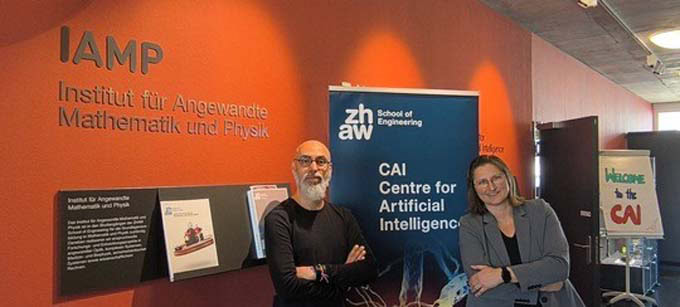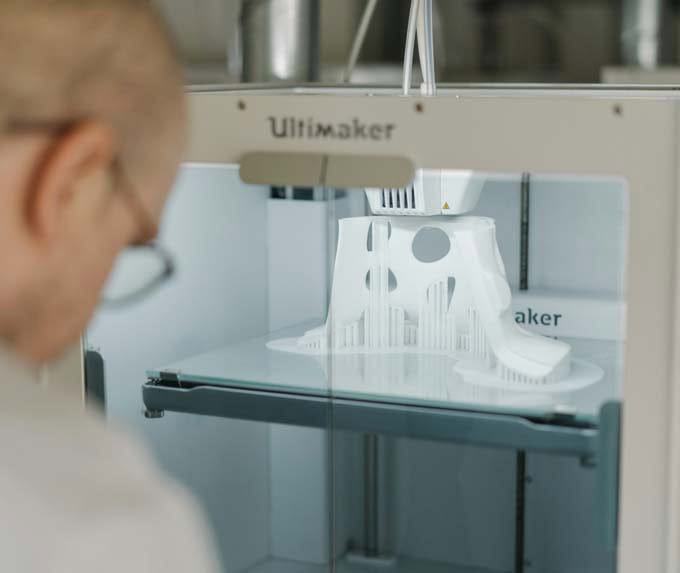SFAQ awards Seghezzi Prize
The SFAQ, Swiss Foundation for Research and Education "Quality", has awarded the Seghezzi Prize. It was won by Philipp Schaber. His research is an excellent example of how machine learning can support quality management, said the jury, which is chaired by Martina Zölch of the SFAQ.

Also this year's "Swiss Quality Day of the SAQ on 4 May 2021 had to be held virtually due to the pandemic. However, the speakers were on site, as were the Seghezzi Award winner and the jury. And so Prof. Dr. Martina Zölch, SFAQ foundation board member and president of the jury, was able to ceremoniously present Philipp Schaber with the 2021 Award for the Promotion of Integrated Management of Quality.
Philipp Schaber first completed his Bachelor of Science in Mechanical Engineering & Business Transformation at the Technical University in Graz before taking up and successfully completing a Master's degree in Management, Technology and Economics at ETH Zurich. His career has now been crowned with the Seghezzi Prize: Schaber (1993), who was born in Austria, received the prize money of CHF 10,000 for his outstanding achievements in his Master's thesis on "Using deep learning to detect assembly errors".
Using unsupervised machine learning methods
Prof. Dr. Torbjörn Netland and Julian Senoner were the supervisors of the master's thesis that Philipp Schaber successfully completed in August 2020. In his thesis, Schaber, in collaboration with Siemens Smart Infrastructure (SI), investigated the question of whether unsupervised machine learning methods can be used to detect assembly errors in manufacturing.
This interesting research question is of high practical relevance, at a time when machine learning is on the verge of a breakthrough in manufacturing, as SFAQ points out.
In his master's thesis, Schaber proposes an unsupervised machine learning approach that can only be trained on the basis of "error-free" images. Reliable error detection mechanisms as well as computational efficiency are to be achieved through a targeted combination of transfer learning and "nearest neighbor classification".
Empirical evidence provided
Philipp Schaber subjected these challenges to a practical test in two test plants at Siemens Smart Infrastructure. In the course of his field tests, he was able to provide empirical evidence of how the proposed approach can reliably detect installation errors in practice, while maintaining high computational efficiency, as SFAQ writes.
The research work of Philipp Schaber is thus an excellent example of how machine learning can support quality management. With the present work, a research gap has been closed in a model-based and empirically convincing manner, which is of high practical relevance.
Jury statement
The jury explained its decision as follows:
The Innovation potential of the work is considerable: The approach of the "unsupervised approach" is innovative in itself. Up to now, defect detection mechanisms have mainly been learned from defective products. "Extending deep learning by the methodological approach of the unsupervised approach and linking it to neural network theories opens up new perspectives for machine learning and enlarges the scope of the deep learning approach.
Since the "Unsupervised Machine Learning" approach is based on a training that works with error-free images, this enables an extremely efficient use of computing power. As could be empirically demonstrated in the work, there is a significant reduction in effort with almost unchanged expressiveness in terms of error detection.
Here shows the high practical relevance of work: Fault detection in the manufacture and assembly of printed circuit boards has so far been largely based on inspection by employees, which is still unavoidable outside large-scale production. However, their perception is prone to errors, which can result in follow-up costs, and the performance of such work activities is often stressful.
With the proposed approach, machine defect detection can also be used in the production of small and medium series, which should significantly increase the scope of application.
In addition to the innovative theoretical and methodological approach to efficient and effective defect detection, business management issues of defect costs and personnel deployment are thus also raised. The work, which is based at the interface of business administration, technology and computer sciences, thus also makes an integrative contribution to general management and the significance of quality.
In conclusion, the jury emphasizes: "We are pleased to be able to award this innovative work of high scientific and practical relevance with the Seghezzi Prize 2021."
The Seghezzi Prize is announced every two years.

The crowning glory for his Master's thesis - Philipp Schaber with the Seghezzi Prize. © R. Strässle









